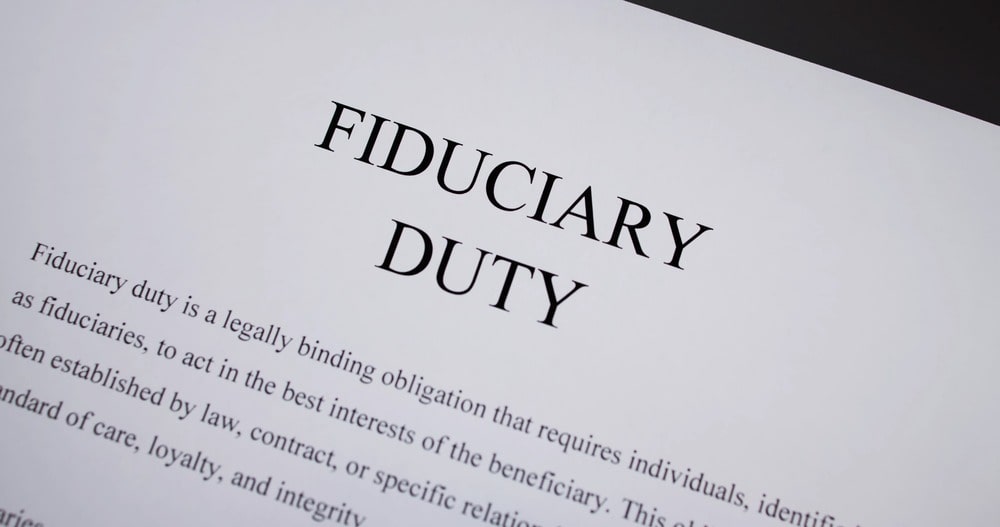What Makes a Will Valid in Texas?

You work hard your entire life, providing for the ones you care about the most. How you pass on your assets should be for you to decide and not left up to chance. Without a plan, you risk someone else determining who gets what you have built. That’s why having a will can protect you, your family, and your legacy.
So, where do I start? What makes a will valid in Texas? How do I ensure my final wishes are honored? We can help answer these questions.
At Lewis Law Firm PLLC, we believe estate planning is the kindest thing you can do for your family. We focus on estate and legacy planning, probate, and related matters, helping Texans protect their assets and avoid unnecessary court battles. Attorney Samantha Lewis founded the firm after nearly a decade of legal experience, leading with compassion and clarity to simplify what many lawyers overcomplicate.
Who Can Create a Will in Texas?
A will is only valid if the person who created it had the authority to create it. Texas law sets two basic requirements. The person must be at least 18 years old and of sound mind. A person is of sound mind if they can understand:
- They are making a will,
- What property and assets they own, and
- Who their close family members and beneficiaries are.
Although there are limited exceptions for minors, a person younger than 18 may create a will if they are legally married or a member of the U.S. armed forces.
What Makes a Will Legal in Texas?
If the will’s creator, called a “testator,” was over 18 and of sound mind, the validity of the will depends on the will meeting specific requirements under Texas law. A will that does not meet these requirements, called will formalities, is generally invalid.
Written Requirement
A will must be in written form to be valid. Most modern wills are typewritten.
Signature Requirement
The testator must sign the document, typically at the end, following all of the will’s terms. When the testator signs, they attest that they are of sound mind and that the document is their intended last will and testament.
In limited cases, another person may sign on behalf of the testator. Specifically, someone else may sign if the testator is unable to do so, but only in the testator’s presence and at their direction.
Witness Requirement
Texas requires at least two credible witnesses over the age of 14 to sign the will to make it valid. Credible witnesses are those who must be competent to testify in court. Ideally, the witnesses are not individuals who will receive something under the will, but state law does not forbid individuals with an interest in the estate from serving as witnesses.
Witness Exception: Holographic Wills
Texas law refers to handwritten wills as “holographic wills.” Holographic wills do not require witnesses. But, to be valid, the testator must still sign the will, which must be entirely in the testator’s handwriting.
Courts often scrutinize holographic wills carefully. They may call handwriting experts or require additional proof to confirm the document is truly the testator’s intended last will and testament.
Self-Proving Affidavit
Many wills include what is called a “self-proving affidavit.” In this sworn written statement, the testator and witnesses attest that the related document is the testator’s intended last will and testament. To do so, they sign before a notary public, who then notarizes the affidavit.
Without a self-proving affidavit, witnesses typically have to testify in court to confirm that the offered will is the testator’s intended will. With a self-proving affidavit, the court can admit the will to probate without requiring the witnesses to appear in person.
Don’t Leave Your Legacy to Chance
A will that doesn’t meet Texas requirements can be challenged or even declared invalid. We’ll help you prepare a valid, enforceable will so your wishes are honored and your loved ones are protected.
Challenges to the Validity of a Will
Even if a will appears valid, interested parties—people with a financial or personal stake in the estate, such as heirs, beneficiaries, and sometimes creditors—can challenge it in probate court. Such challenges are called will contests, further illustrating the importance of understanding what makes a will valid in Texas.
Common grounds for a will contest include:
- Lack of testamentary capacity. The testator was not of sound mind when they made the will, which is a basic requirement for testators in creating a will.
- Undue influence. Someone pressured or manipulated the testator into making or changing the will so it no longer reflects the testator’s genuine expressions of intent.
- Improper execution. The will does not meet signature or witness requirements, violating will formalities.
- Fraud or forgery. Someone altered or falsified the will, or the testator otherwise did not create it, calling into question whether it’s the testator’s intended last will and testament.
When someone dies without a will, their estate passes according to Texas intestacy law. The same occurs if someone challenges a will and a court concludes it is invalid. If the deceased person left behind a surviving spouse or descendants, the estate generally passes to them. If not, their estate may pass to their parents, siblings, grandparents, aunts and uncles, first cousins, or the state.
Protecting Your Wishes with Lewis Law Firm PLLC
At Lewis Law Firm PLLC, we help Texans prepare wills and broader estate plans tailored to their unique situations. We know from experience how important it is to create a plan that truly works for you and your family. By offering accessible estate and legacy planning services, we empower clients to protect their assets, avoid probate headaches, and give their loved ones peace of mind.
If you are ready to prepare or update your will, contact Lewis Law Firm PLLC today. We are here to simplify the process and guide you every step of the way.
Resources:
- Estate of an intestate not leaving spouse, Tex. Est. Code § 201.001 (2014), link.
- Separate estate of an intestate, Tex. Est. Code § 201.002 (2014), link.
- Who may execute a will, Tex. Est. Code § 251.001 (2017), link.
- Written, signed, and attested, Tex. Est. Code § 251.051 (2017), link.
- Exception for holographic wills, Tex. Est. Code § 251.052 (2023), link.
- Requirements for self-proving affidavit, Tex. Est. Code § 251.104 (2017), link.
- How Much Does a Will Cost in Texas?
Related Posts
How Much Does Estate Planning Cost in Texas?
When considering your family’s future, one of the most common questions is: How much does estate planning cost? In Texas, a basic estate plan usually costs a couple of thousand dollars, while more complex plans can exceed $5,000, depending on your goals and how much…
How Much Does a Will Cost in Texas?
Many Texans worry about the expense of creating estate planning documents. One of the most frequent questions we hear is, How much does a will cost in Texas? The amount varies across the state, but the average basic will-based estate plan costs between $1,500 -…
How to Contest a Will in Texas
Challenging a will in Texas means filing a legal claim that questions whether the will is valid and enforceable. A person may file a challenge if they believe the will does not reflect the deceased’s true wishes, or if its creation was under questionable circumstances,…
7 Ways to Find the Best Civil Litigation Attorney Near Me
Litigation involves a lot: complex procedures, emotional challenges, days of evidence review, and lengthy discussions. Hiring a strong litigation attorney can ease the intimidation a legal dispute may bring. But, how do I find the best civil litigation attorney near me? You may not know…
What Is Fiduciary Litigation in Texas?
When someone manages property, money, or other assets for another, the law requires them to act in that person’s best interests. A fiduciary has a legal responsibility to do what’s right. But sometimes they fall short in fulfilling their duties, and litigation is necessary to…
Incapacity Planning: Essential Benefits of Trusts
The Benefits of Incapacity Planning with a Trust Key Highlights An incapacity plan is a critical part of your estate planning that often gets overlooked. Using a trust allows a successor trustee to manage your trust assets seamlessly if you become unable to do…
Whether you need a personalized estate plan or help handling a civil dispute, we're here to help
Take the first step toward protecting your legacy and giving your family lasting peace of mind. Whether you need a personalized estate plan or help handling a civil dispute, we're here to help.







